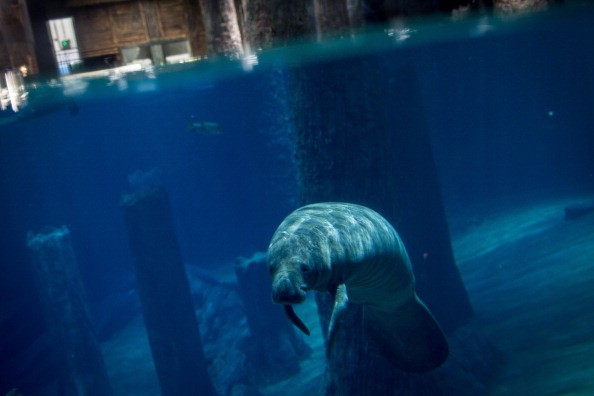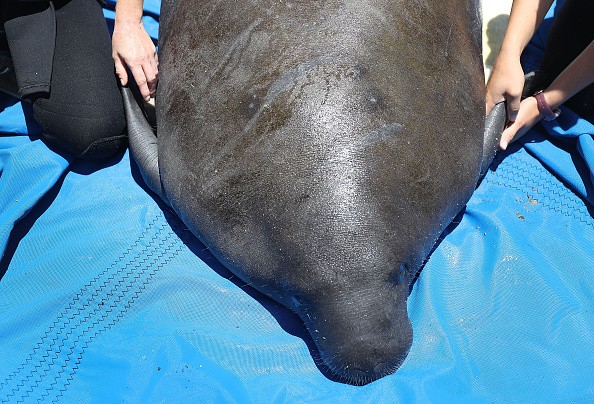This year Florida's manatees are dying off at unusually high rates, and experts are warning that the continuous loss of a major food source is seriously threatening the iconic marine mammals.

Recorded Deaths of Manatee
The most recent reports of Florida Fish and Wildlife Conservation Commission, which spans 1st Jan. to 28th May, documented 761 manatee deaths so far in 2021. Researchers say the alarming die-off this year could exceed the documented 804 manatee deaths that were tallied in 2018.
A marine biologist and oceanographer at Florida Atlantic University in Boca Raton, Jon Moore said: "If this persists through the remaining part of the year, this is going to be one of the highest mortality years ever." Moore said the major issue is making water quality worse in Florida's waterways from wastewater contamination and nutrient runoff that prompt toxic red tides and overgrowths of algae, referred to as algal blooms.
Manatees Experience Starvation and Malnourishment
These constant problems are killing seagrass and seaweed-like plants that develop underwater and are a major food source for manatees. Moore said the algal blooms are making the water clouded and also cutting off light, so the seagrass won't be able to photosynthesize and sustain themselves.
He added that manatees experience starvation and malnourishment because of this. In the Indian River Lagoon, a 150-mile estuary along the Atlantic coast of Florida where manatees are known to forage yearly, researchers have recorded a devastating seagrass loss.
Since 2009, an evaluated 58 percent of the lagoon system's seagrass has been eliminated, according to the St. Johns River Water Management District. Algal blooms are brought about by the rapid growth of microscopic organisms and usually generate dangerously increase levels of toxins in the water.
Algal blooms can take place naturally, but nutrient pollution from fertilizers, toxic wastewater, stormwater runoff and other contamination sources can aggravate outbreaks of algal blooms - and make them more recurrent.

Florida's Fragile Ecosystems
Patrick Rose, executive director of Save the Manatee Club, a nonprofit that was established in 1981 by singer Jimmy Buffett and past Florida Gov. Bob Graham said decades of nutrient pollution are accumulating the environmental stresses on the fragile ecosystems in Florida.
Rose said: "River systems and lagoons can soak up these nutrients to a point, but once you exceed a tipping point, we start to get these excessive algal blooms, this reveals that we need to entirely re-examine how we grow and develop sustainably."
Part of that reexamination will require bolstering systems to process human waste to avoid nutrients like phosphorous and nitrogen from leaching into waterways, Rose said.
The U.S. Fish and Wildlife Service considered Manatees "endangered," but in 2017 a politically contentious decision altered the animals' conservation status to "threatened."
The disturbing number of manatee deaths recorded this year may force authorities to revise that classification, Moore said.
Related Article : Why are Manatees Dying at an Alarming Rate in the First Months of 2021?
For more news, updates about manatees and similar topics don't forget to follow Nature World News!
© 2025 NatureWorldNews.com All rights reserved. Do not reproduce without permission.





